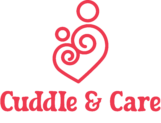Breastfeeding is one of the best ways to give your baby a healthy start in life. Experts agree that breastfeeding should begin as soon as possible after birth. This practice is called early initiation of breastfeeding. It means starting to breastfeed within the first hour of your baby’s life. This first hour is often referred to as the “golden hour,” because it is a precious time for both mom and baby.
In this article, we will talk about why early initiation of breastfeeding is important, how it helps both you and your baby, and how you can make it happen.
What is Early Initiation of Breastfeeding?
Early initiation of breastfeeding means placing your newborn on your chest and letting them start breastfeeding within the first hour after birth. This helps create a strong bond between you and your baby right away. During this time, your baby receives important nutrients and comfort.
This practice is recommended by the World Health Organization (WHO) and many health experts around the world.
Why is Early Initiation of Breastfeeding Important?
Early breastfeeding offers many benefits for both you and your baby. One important benefit is that it provides colostrum, the first milk your body produces. Colostrum is thick, yellow, and full of nutrients and antibodies. Consequently, this special milk helps protect your baby from infections and boosts their immune system.
In addition, early breastfeeding promotes bonding. Skin-to-skin contact during breastfeeding helps create a close emotional connection between you and your baby. This bond helps your baby feel safe, secure, and loved.
Moreover, early breastfeeding helps regulate your baby’s temperature. When you hold your baby close, your body naturally adjusts to keep them warm. This helps your baby stay comfortable and maintain a stable body temperature.
Similarly, early breastfeeding supports your baby’s breathing and heart rate. The comfort and warmth from being close to you help your baby’s vital signs stabilize, making them feel calm and secure.
Finally, early breastfeeding encourages successful feeding habits. When babies begin to breastfeed within the first hour, they learn to latch properly. This helps set the stage for continued breastfeeding success and ensures they get the nutrition they need.

How to Initiate Breastfeeding Early
Starting breastfeeding early can be simple. Here are some steps to help you:
First, make sure to have skin-to-skin contact. As soon as your baby is born, place them on your bare chest. Make sure both of you are covered with a warm blanket.
Next, let your baby lead. Give your baby time to explore. Most newborns will start showing signs that they want to feed. They may turn their head, open their mouth, or move their hands toward your breast.
Then, be patient. It may take some time for your baby to latch on. Be calm and patient. Your baby’s natural instincts will guide them.
Finally, if you have trouble, get help. Nurses, midwives, or lactation consultants can help you and your baby find a comfortable position.
Signs Your Baby is Ready to Breastfeed
Newborns give signals when they are ready to feed. Here are some common signs:
- First, watch for mouth movements, such as opening and closing their mouth or sticking out their tongue.
- Next, look for the rooting reflex, where your baby turns their head toward your breast and tries to suck.
- Additionally, notice hand movements, such as bringing their hands to their mouth.
- Finally, crying is a late sign of hunger. Therefore, try to feed your baby before they start crying.
Benefits for Mothers
Early breastfeeding is not just good for babies. It also has many benefits for moms:
- Faster Recovery: Breastfeeding helps your uterus return to its normal size and reduces bleeding.
- Bonding: Holding your baby close helps you feel more connected and confident.
- Lower Risk of Postpartum Depression: Early breastfeeding can help reduce stress and improve your mood.
- Health Benefits: Breastfeeding lowers the risk of breast cancer, ovarian cancer, and type 2 diabetes.
Cuddle and Care Tips
Sometimes, early breastfeeding can be challenging. Here are some tips to help overcome common problems:
- Difficulty Latching: Try different positions. A nurse or lactation consultant can guide you.
- Caesarean Birth (C-Section): If you had a C-section, you can still practice skin-to-skin contact. Ask your healthcare provider for support.
- Low Milk Supply: Remember, your body produces colostrum first. Milk supply will increase as your baby continues to nurse.
- Sore Nipples: Make sure your baby is latching correctly. Applying a few drops of breast milk to your nipples can help soothe them.
When to Ask for Help
Don’t be afraid to ask for help if you have concerns about breastfeeding. Contact a healthcare provider or lactation consultant if:
- Your baby isn’t latching well.
- You experience severe pain.
- Your baby isn’t feeding frequently or seems unsatisfied.

